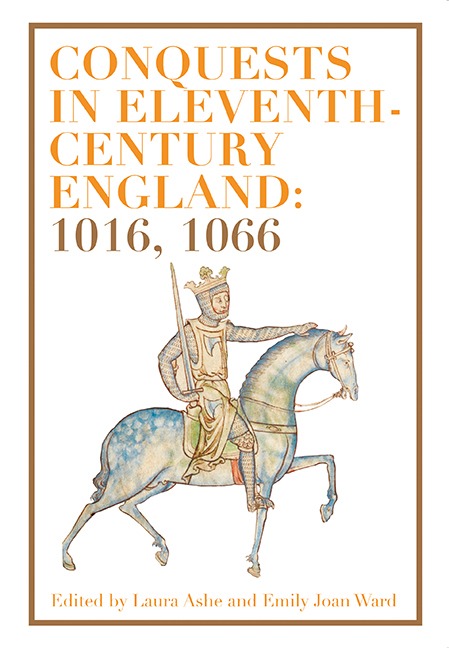15 - The View from Wales: Anglo-Welsh Relations in the Time of England’s Conquests
Published online by Cambridge University Press: 26 April 2020
Summary
A picture of Anglo-Welsh relations in the eleventh century must be pieced together from scattered and fragmentary evidence, including references to conflict and co-operation in various chronicles (whether English, Welsh or Irish) and the patterns of land-holding along the border revealed in Domesday Book and charters. This picture is consequently something of a patchwork, but nevertheless offers a tantalizing glimpse of complex and fluctuating interactions. For the period after the Norman Conquest of England, there have been numerous studies of interaction in the Welsh march, with focus especially on relations between native Welsh rulers and Marcher lords. The activities of Gruffudd ap Llywelyn (d. 1063) have dominated discussion of the decades prior to 1066, partly because of the impression this Welsh king made on English sources, including multiple appearances in the Anglo-Saxon Chronicles. Indeed, prior to the beginning of Gruffudd ap Llywelyn's rule over Gwynedd in 1039, Kari Maund has suggested that ‘Wales was not a major English concern in this period’, and nor were the Welsh particularly interested in England, focusing instead on internal conflict.
This understanding of Anglo-Welsh relations is not unproblematic. Whilst clearly an important figure, the unprecedented nature of Gruffudd ap Llywelyn's career ought not be exaggerated, and neither can a clear distinction between internal and external affairs in eleventh-century Wales be maintained. An overriding focus on the process of conquest has also resulted in the examination of Welsh relations with the Anglo-Normans primarily in terms of conflict. Placing Anglo-Welsh relations in a broader context has proved a more productive approach, as scholars have recognized that interaction across the Irish Sea region played a formative role in Welsh politics during this period, and that relations with England cannot be divorced from this wider setting. Indeed, Colmán Etchingham has made the case for expanding the borders of this theatre of interaction to cover the Scottish Isles and even Scandinavia itself, designating the whole area an ‘insular Viking zone’, of which north Wales was a key part. Etchingham has productively reinterpreted certain eleventh-century events in this broader context, such as the assistance given by Gruffudd ap Llywelyn and Magnús son of king Haraldr Harðráði of Norway to Earl Ælfgar of Mercia on his expulsion from England in 1058, and the killing of Hugh of Shrewsbury by Magnús Berfoettr on Anglesey in 1098.
- Type
- Chapter
- Information
- Conquests in Eleventh-Century England: 1016, 1066 , pp. 287 - 306Publisher: Boydell & BrewerPrint publication year: 2020



